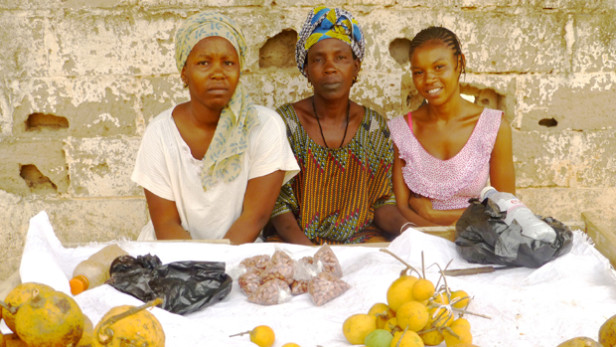Организация Женщины ООН (UN Women) призывает граждан всего мира уделить значительное внимание гендерному равенству
Запуск Кампании Beijing+20 (Пекин+20): Расширение возможностей женщин расширяет возможности всего человечества: Помни об этом и действуй!
(22 мая, Нью-Йорк)— Организация Женщины ООН объявила сегодня о начале крупной кампании в ознаменование 20-й годовщины исторической Четвертой всемирной конференции по положению женщин в Пекине. Широкие действия, которые будут проводиться в мире в течение всего года, будут направлены на мобилизацию правительств и граждан на то, чтобы представить картину мира, где равенство мужчин и женщин будет реальностью, и на то, чтобы всем миром обсудить принцип, как расширение возможностей женщин расширит возможности всего человечества.
Проводимые мероприятия будут фокусироваться на достижениях и пробелах в гендерном равенстве, а также на расширении прав и возможностей женщин с того времени, когда 189 правительств приняли в 1995 году Пекинскую Декларацию и Платформу Действий. Этот дерзновенный план прокладывает путь к достижению полного и равноправного участия женщин во всех сферах жизни и принятия решений.
"Пекинская Платформа Действий - это невыполненное обещание, данное женщинам и девушкам, - говорит Фумзиле Мламбо-Нгкука, Исполнительный директор организации Женщины ООН. - Наша цель проста: возобновить принятые обязательства, активизировать действия
и увеличить ресурсы для реализации гендерного равенства, расширения возможностей и человеческих прав женщин и девушек." Пекинская конференция по положению женщин привлекла беспрецедентное участие - 17 000 непосредственных участников и 30 000 представителей, посетивших Форум неправительственных организаций. В 2015 году Организация Объединенных Наций проведет оценку прогресса, достигнутого в исполнении Пекинской Платформы Действий за прошедшие 20 лет, основываясь на отчетах правительств, которые в настоящее время подготавливаются странами-членами ООН.
Кампания откроется 24-часовым всемирным твиттерным марафоном. Среди групп-участников - организация Всемирная Христианская организация молодых женщин, Всемирная ассоциация девушек-гидов и скаутов, Фонд "Половина Неба" организация Европейское Женское Лобби, Европейский Женский Медиа-Центр, Девекс и другие региональные и национальные экспертные группы.
Организация Женщины ООН также торжественно откроет мировой информационный центр, представляющий широкое разнообразие мнений, свидетельств личного опыта и достижений, знаменитостей, достигших значительных успехов, и календарь мероприятий Пекин+20. Веб-платформа HeforShe осветит деятельность известных мужчин, выступающих за прекращение насилия против женщин и обеспечение равенства. Организация Женщины ООН будет поддерживать расширение движения через свою сеть офисов в странах и выпуск интерактивного прикладного средства Facebook app, "ClosetheGap" (Ликвидировать Гендерный Разрыв ).
"Эта годовщина приходится на исторический момент, - подчеркивает Исполнительный Директор Организации Женщины ООН, Г-жа Мламбо-Нгкука, - когда народы всего мира объединяются для ускорения прогресса в достижении Целей Развития Тысячелетия к 2015 году и определяют новую общемировую программу развития. Мы не должны упустить эту представляющуюся один раз за поколение возможность поставить вопросы гендерного равенства, прав и возможностей женщин в центр общемировой повестки дня и сделать их реальностью."
По всему миру планируются крупные мероприятия на эту тему. В предстоящем июне десятки тысяч участников соберутся в Швеции с
выступлением в защиту человеческих прав женщин и девушек. В сентябре на Встрече на высшем уровне по вопросам изменения климата в Нью-Йорке будет проведена специальная встреча женщин-глав государств и лидеров женского движения. В ноябре в Индии мужчины и юноши выступят в защиту гендерного равенства.
Официальное празднование 20-й годовщины будет проведено во время 59-й сессии Комиссии по статусу женщин в марте 2015 года, а Международный женский день 2015 года будет посвящен тематике Пекин+20. В сентябре 2015 года предполагается проведение международной встречи на высоком уровне с принятием конкретных обязательств.
За прошедшие два десятилетия достигнут значительный прогресс в обеспечении законных прав женщин, в их образовании и участии в общественной жизни. Но многое еще предстоит сделать для устранения неравенства в заработной плате и неравных возможностей мужчин и женщин, низкого представительства женщин на лидирующих постах в правительственных органах и частном секторе, запрещения детских браков, широкого распространения насилия и других нарушений в отношении женщин и девушек.
"Сегодня я призываю вас всех принять участие в осуществлении этих решений, - заявила г-жа Мламбо-Нгкука. - Помни об этом и действуй! Все вместе мы сможем выполнить обещание, данное в Пекине: достижение равенства между женщинами и мужчинами."




